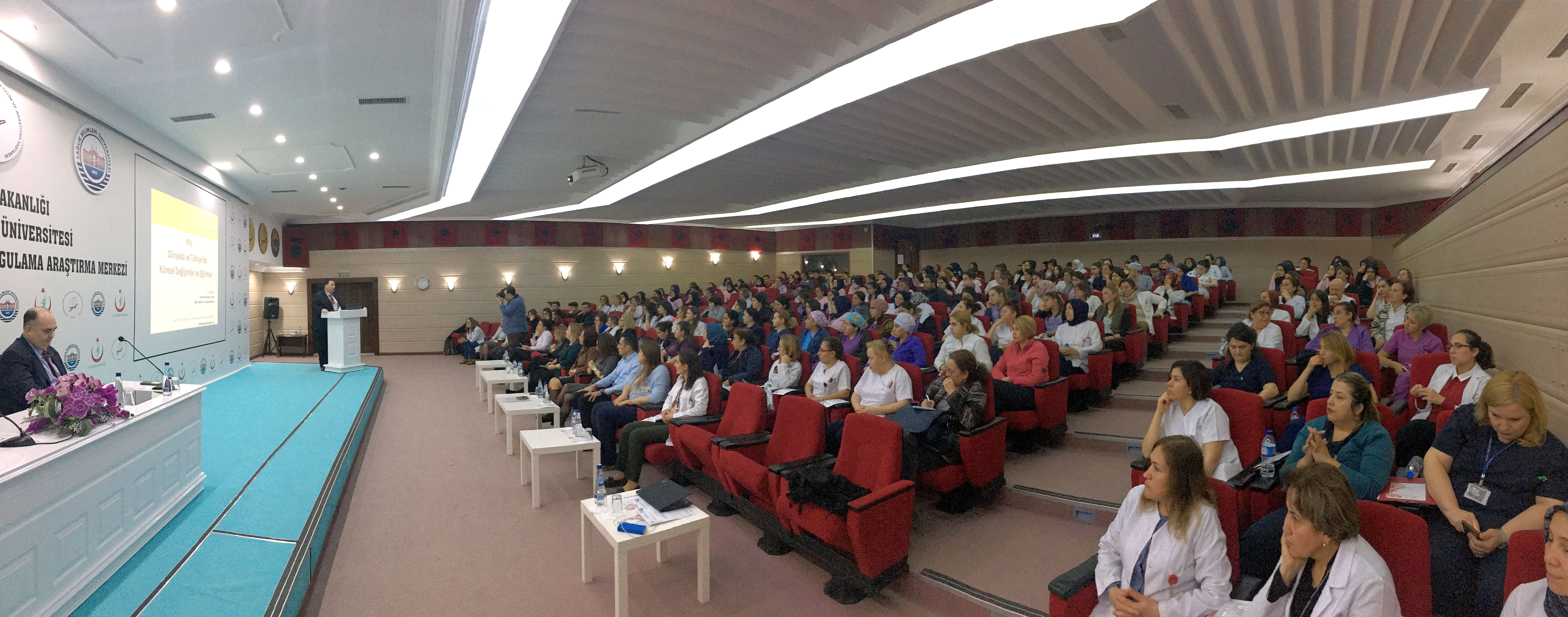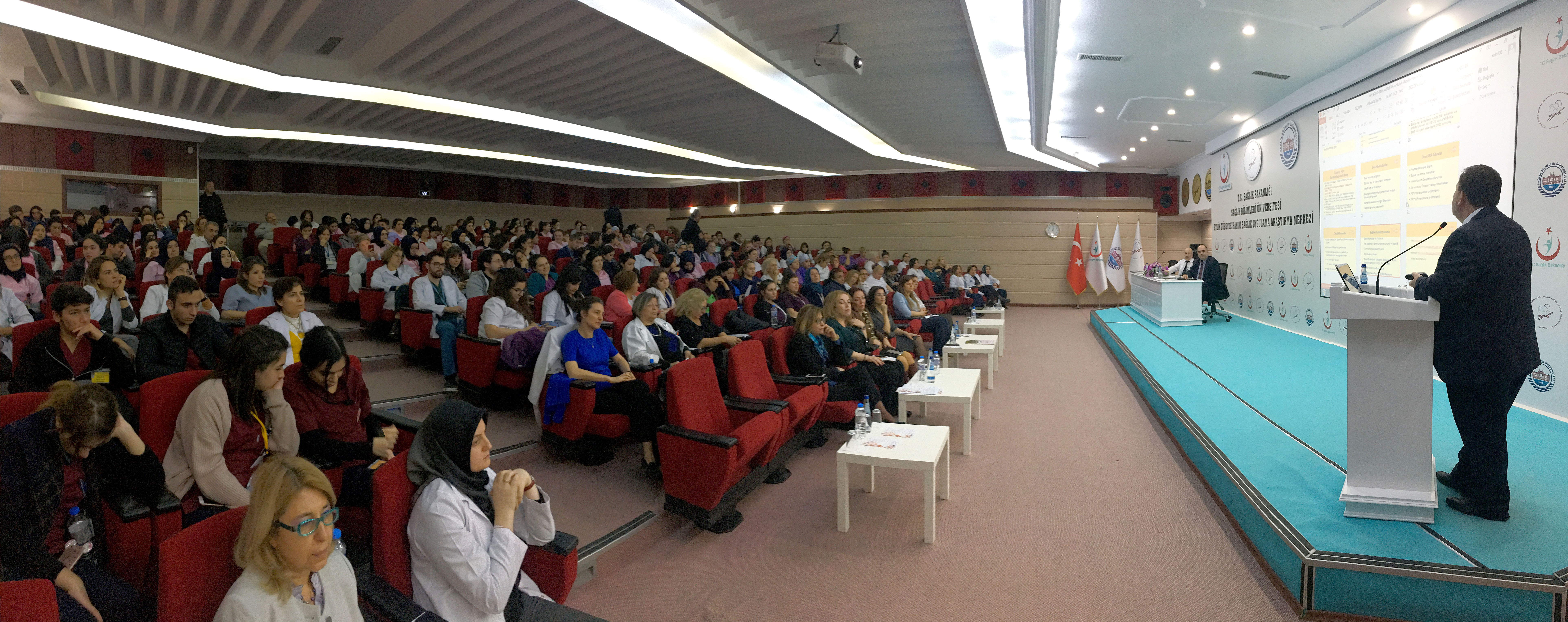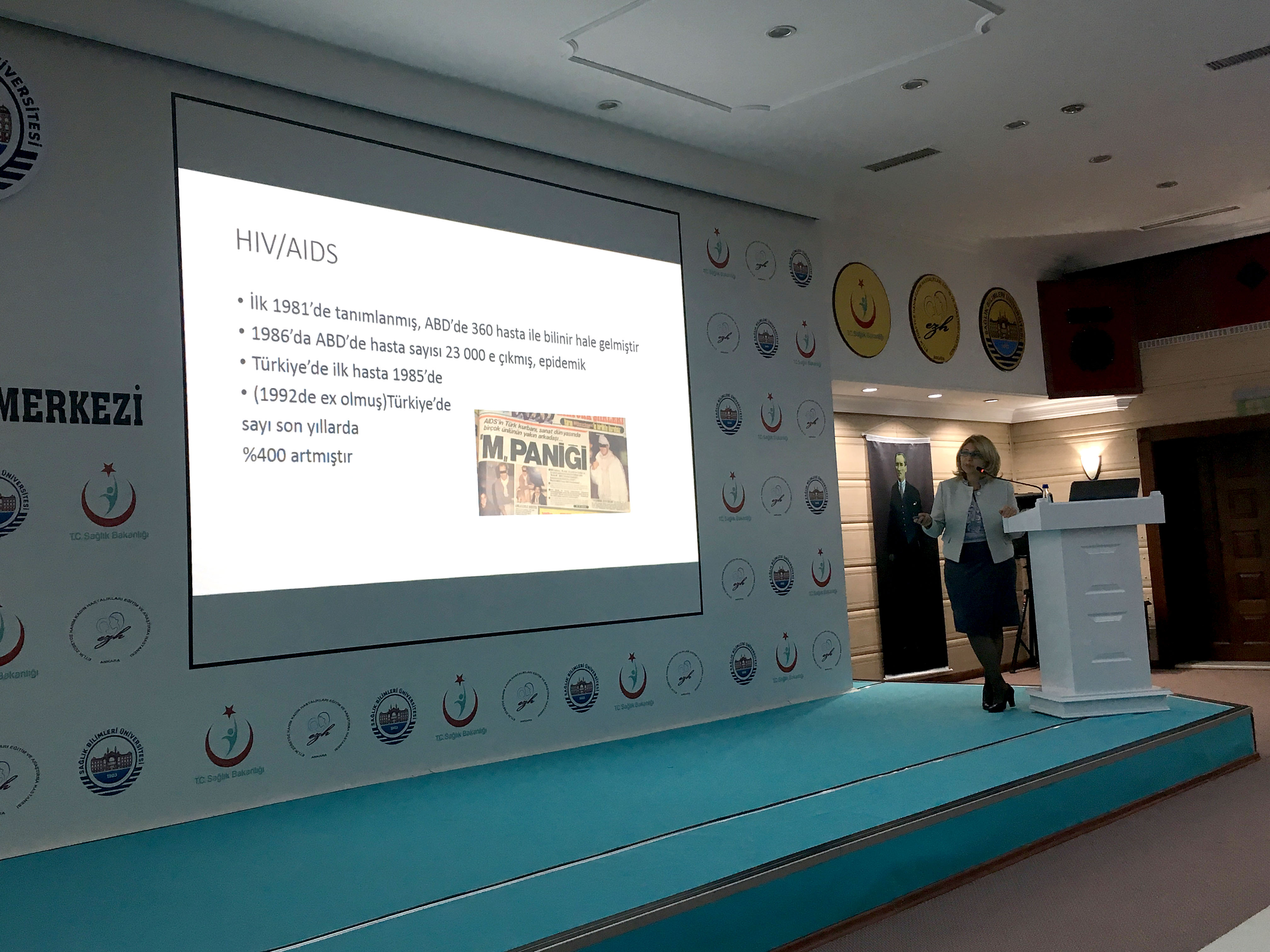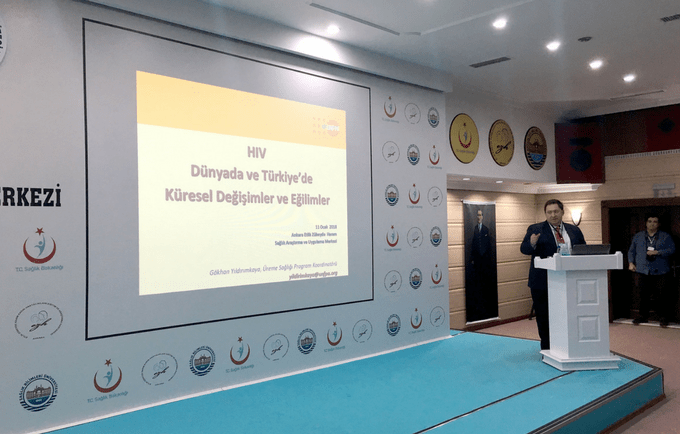11 January 2018, Ankara – United Nations Population Fund (UNFPA), with the cooperation of the Ministry of Health University of Health Sciences and Etlik Zübeyde Hanım Women's Gynecology and Obstetrics Training and Research Hospital, organized a panel titled "How to approach HIV positive patients from the viewpoint of gynaecological diseases and birth" with the participation of the assistant physicians working in the hospital.
Chief Physician of Ankara Etlik Zübeyde Hanım Gynecology and Obstetrics Training and Research Hospital, Assoc. Prof. Dr. Ozlem Moraloğlu Tekin stated in her opening remarks, "In order to provide safer health services, particularly to HIV-positive pregnant women, which we observed a rapid increase in the number of in Turkey, we check ourselves as a hospital, identified our deficiencies and corrected them by replenishing our inventory. Our goal with this meeting is to raise awareness among our recently joined assistants and our experienced health care staff for them to provide safer health services to HIV-positive patients".

Academic member of Ankara Etlik Zübeyde Hanım Gynecology and Obstetrics Training and Research Hospital, Prof. Dr. Salim Erkaya said that "Through this panel, we want to share vital information to all our teammates in the hospital regarding how to manage the prenatal and postnatal progress for an HIV-positive pregnancy. Hospital staff need to have advanced knowledge and equipment in order to be able to manage this kind of cases properly".
United Nations Population Fund (UNFPA) Reproductive Health Program Coordinator Dr. Gökhan Yıldırımkaya said in his presentation at the panel, "In the 1990s, people with HIV hid the fact that they were HIV positive when they visited a health facility. We not only have to know how to live with HIV, but also it is mandatory for all of us to know very well what types of health services can be provided to HIV-positive patients. For this to happen, healthcare personnel and everyone working under the roof of a health organization need to get complete training. All health staff need to know how to provide health services to people with HIV, as in the case of a cleaning person who accidentally got infected when an injector’s needle pricks his hand during the cleaning. We are organizing this panel today here with the guide of the 'leave no one behind' of the Sustainable Development Goals vision".

Dr. Yıldırımkaya, in his presentation, stated that it has been observed that the HIV epidemic has slowed down globally, although there is a rapid increase in the new HIV cases’ speed in Eastern European and Central Asian regions where Turkey is also located. Dr. Yıldırımkaya emphasized that in these regions, the rate of new HIV cases’ increase is reaching 60%. Now, all the presumptions that were believed to be true in the past regarding the virus are no longer applicable regarding geography, age, social status, transmission, gender, sexual orientation etc. Now, we know that everyone can easily get infected if necessary precautions are not taken.
Dr. Gökhan Yıldırımkaya said that an HIV-positive person can live a healthy life with the regular treatment given that the infected individual can have full access to the treatment. Dr. Yıldırımkaya noticed the increasing number of new HIV (+) cases among the young people in Turkey who are unfortunately left behind in the improvement of safe behaviours and protection against HIV because he added “we do not have a curriculum yet built around this topic in schools, as a result, we do not have reproductive health education for adolescent students”.

Prof. Dr. Berna Dilbaz, an academic member of Etlik Zübeyde Hanım Women's Gynecology and Obstetrics Training and Research Hospital also had a presentation. Prof. Dr. Dilbaz said in her presentation that AIDS was first mentioned in 1981 with 360 cases in the States. When AIDS first appeared, she informed that it had been misinterpreted because it was linked solely to homosexuality, but when it started to be seen in women as well, it attracted more attention. Prof. Berna Dilbaz expressed that the first case in Turkey was seen in 1985. She added that today, there are 36 million people living with HIV or AIDS in the world. Prof. Dr. Dilbaz underlined that the reason for the stigma about this virus is based on farfetched talks about the disease. Prof. Dr. Dilbaz stated that with the right information and appropriate prevention methods, it is possible to reverse these prejudices and defeat the virus transmissions. Prof. Dr. Dilbaz emphasized that due to HIV or AIDS, so far, 35 million people have lost their lives. 40% of the new cases, she noted, were made up of women between the ages of 25-39, therefore, as a maternity hospital, both the staff and the equipment should be ready at all times, she concluded.
Following the presentations, assistant physicians who participated as listeners to the panel asked their questions to the participant experts in the panel on the subjects of providing services to HIV-positive patients.
United Nations Population Fund (UNFPA)
The United Nations Population Fund (UNFPA) was established in 1969 as the biggest aid source with international funding in the area of population operating around the world. UNFPA operates in more than 150 countries for creating policies and strategies that support sustainable development. Having started its activities on a project basis, the United Nations Population Fund (UNFPA) has been working on reproductive health, encouraging social-gender equality, and collecting, using and distributing data about development and humanitarian aid in Turkey since 1971. Within this framework, the first Country Program lasted from 1988 to 1992 and now the Sixth Country Program (2016-2020) is being executed.
The United Nations Population Fund (UNFPA) works to deliver a world where every pregnancy is wanted, every childbirth is safe and every young person's potential is fulfilled. To this end, UNFPA focuses especially 5 on the Sustainable Development Goals (SDGs);
- SDG 3: Good health and well-being,
- SDG 5: Gender Equality
- SDG 10: Reduced Inequalities
- SDG 16: Peace, Justice and Strong Institutions
- SDG 17: Partnerships for Goals
Follow United Nations Population Fund (UNFPA) on social media:
Facebook: UNFPA.Turkey Twitter: UNFPATurkey Instagram: unfpa_turkey YouTube: UNFPATurkey


